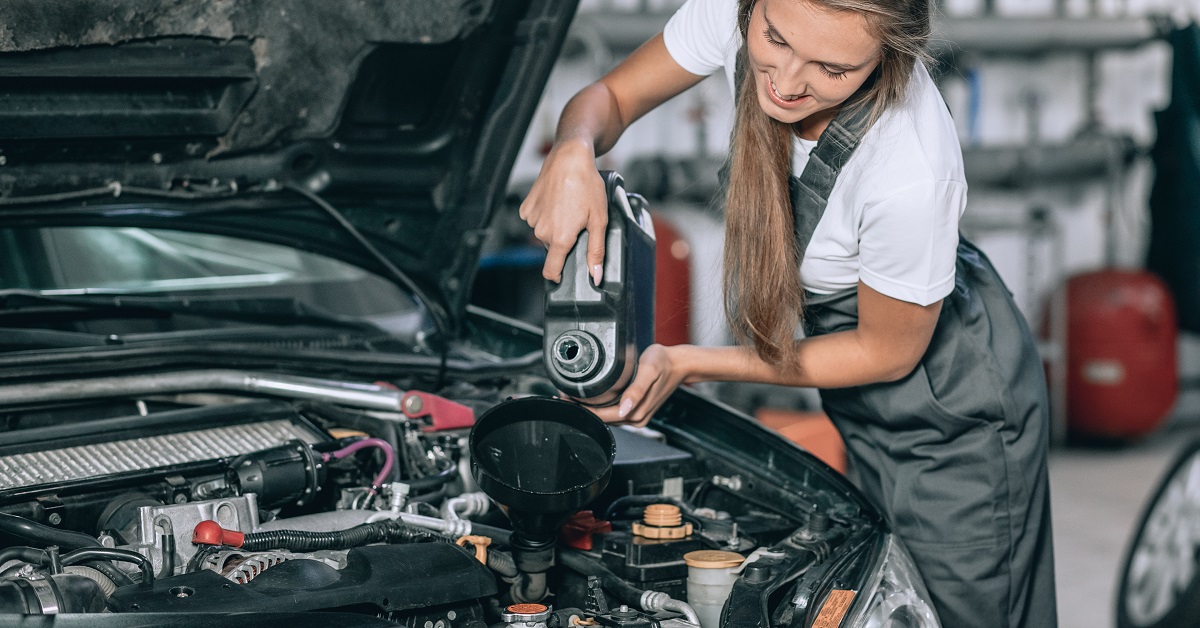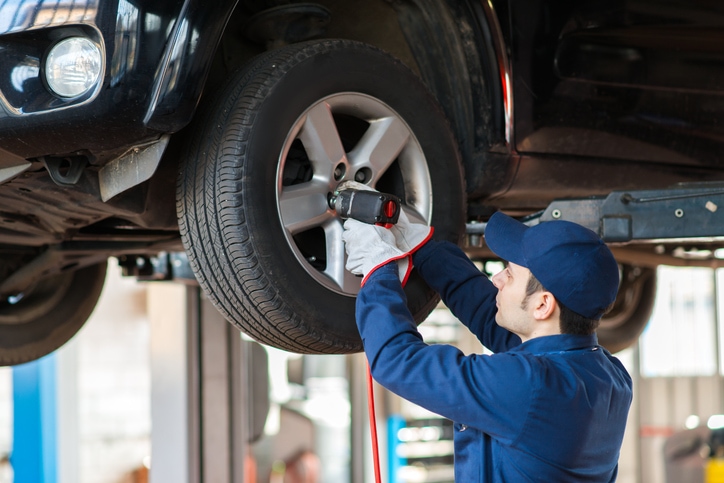All Categories
Featured
Your car counts on different liquids to maintain its components running efficiently and effectively. Comprehending the function of each liquid and remaining proactive in upkeep ensures your vehicle operates at its best.
![]()
Why It Issues: Without proper lubrication, engine parts can grind against each various other, leading to significant damages. Maintenance Tips: Examine your oil degree month-to-month using the dipstick and round off if needed. Replace the oil and filter according to your automobile's solution schedule, normally every 3,000 to 7,500 miles depending upon the oil type and driving conditions. 2. Coolant: Controling Engine Temperature Level. Coolant, likewise called antifreeze, assists preserve your engine's temperature level within the optimum range. It avoids overheating during heat and cold throughout cool conditions.
Why It Issues: Abject or inadequate coolant can bring about engine getting too hot, which can trigger serious damages. Upkeep Tips: Examine the coolant tank regularly and seek leakages or staining. Flush and refill coolant as suggested, usually every two to five years. 3. Brake Fluid: Trusted Ending Power. Brake liquid is vital for your car's stopping system, transferring the pressure from your foot on the brake pedal to the brakes themselves. With time, brake liquid can soak up dampness, which decreases its performance.
Why It Matters: A compromised stopping system can severely impact your safety. Upkeep Tips: Examine the brake fluid tank and guarantee the level stays within the indicated array. Modification the fluid every two to 3 years or as needed. 4. Transmission Liquid: Smooth Gear Shifts. Transmission liquid lubricates the transmission parts and makes certain smooth equipment adjustments. It also stops getting too hot by cooling the system.
![]()
Why It Issues: Neglected transmission liquid can cause tailor slippage, getting too hot, and even complete transmission failure. Upkeep Tips: Screen the liquid's level and problem on a regular basis. Change it according to the supplier's suggestions, commonly every 30,000 to 60,000 miles. 5. Power Steering Liquid: Easy Maneuvering. Power steering liquid assists in smooth and specific guiding. Reduced or contaminated fluid can make steering harder, placing strain on the system.
Why It Issues: Poor guiding responsiveness can endanger your control over the vehicle. Upkeep Tips: Regularly inspect the liquid level and color, and leading it off as required. Be attentive to leaks or unusual steering noises. 6. Windscreen Washer Liquid: Clear Exposure. While it does not effect performance, windshield washer liquid is important for keeping exposure, specifically in damaging problems.
![]()
Why It Matters: A clean windshield guarantees you can see plainly, lowering the threat of accidents. Maintenance Tips: Replenish the washing machine liquid storage tank often and use a formula matched to your climate to avoid cold or spotting. Why Routine Fluid Upkeep is Important. Optimal Efficiency: Appropriate fluid levels and high quality ensure all systems operate smoothly. Safety And Security Guarantee: Brake and power guiding fluids straight influence your ability to control the automobile. Price Financial savings: Preventative upkeep prevents costly repairs by catching possible concerns early. Durability: Liquids in good condition aid prolong the life of vital elements, including the engine and transmission. Quick Tips for Effective Fluid Upkeep. Adhere to the Guidebook: Refer to your vehicle's owner guidebook for details maintenance periods. Be Alert for Leaks: Pools under your cars and truck can show liquid leakages that need prompt focus. Usage Recommended Products: Adhere to liquids suggested by your vehicle supplier to prevent compatibility problems. Focus On Indication: Control panel alerts or unusual efficiency can indicate liquid issues. Verdict. Maintaining your vehicle's liquids is one of the most basic methods to maintain it running successfully and safely. Whether it's engine oil, coolant, or brake liquid, each plays a vital duty in your auto's general health.

- Engine Oil: The Lifeblood of Your Engine. Engine oil plays a crucial function in oiling the engine's relocating components, decreasing rubbing, and shielding versus wear and getting too hot. Gradually, oil comes to be or deteriorates infected with particles, which can compromise its effectiveness.
Why It Issues: Without proper lubrication, engine parts can grind against each various other, leading to significant damages. Maintenance Tips: Examine your oil degree month-to-month using the dipstick and round off if needed. Replace the oil and filter according to your automobile's solution schedule, normally every 3,000 to 7,500 miles depending upon the oil type and driving conditions. 2. Coolant: Controling Engine Temperature Level. Coolant, likewise called antifreeze, assists preserve your engine's temperature level within the optimum range. It avoids overheating during heat and cold throughout cool conditions.
Why It Issues: Abject or inadequate coolant can bring about engine getting too hot, which can trigger serious damages. Upkeep Tips: Examine the coolant tank regularly and seek leakages or staining. Flush and refill coolant as suggested, usually every two to five years. 3. Brake Fluid: Trusted Ending Power. Brake liquid is vital for your car's stopping system, transferring the pressure from your foot on the brake pedal to the brakes themselves. With time, brake liquid can soak up dampness, which decreases its performance.
Why It Matters: A compromised stopping system can severely impact your safety. Upkeep Tips: Examine the brake fluid tank and guarantee the level stays within the indicated array. Modification the fluid every two to 3 years or as needed. 4. Transmission Liquid: Smooth Gear Shifts. Transmission liquid lubricates the transmission parts and makes certain smooth equipment adjustments. It also stops getting too hot by cooling the system.

Why It Issues: Neglected transmission liquid can cause tailor slippage, getting too hot, and even complete transmission failure. Upkeep Tips: Screen the liquid's level and problem on a regular basis. Change it according to the supplier's suggestions, commonly every 30,000 to 60,000 miles. 5. Power Steering Liquid: Easy Maneuvering. Power steering liquid assists in smooth and specific guiding. Reduced or contaminated fluid can make steering harder, placing strain on the system.
Why It Issues: Poor guiding responsiveness can endanger your control over the vehicle. Upkeep Tips: Regularly inspect the liquid level and color, and leading it off as required. Be attentive to leaks or unusual steering noises. 6. Windscreen Washer Liquid: Clear Exposure. While it does not effect performance, windshield washer liquid is important for keeping exposure, specifically in damaging problems.

Why It Matters: A clean windshield guarantees you can see plainly, lowering the threat of accidents. Maintenance Tips: Replenish the washing machine liquid storage tank often and use a formula matched to your climate to avoid cold or spotting. Why Routine Fluid Upkeep is Important. Optimal Efficiency: Appropriate fluid levels and high quality ensure all systems operate smoothly. Safety And Security Guarantee: Brake and power guiding fluids straight influence your ability to control the automobile. Price Financial savings: Preventative upkeep prevents costly repairs by catching possible concerns early. Durability: Liquids in good condition aid prolong the life of vital elements, including the engine and transmission. Quick Tips for Effective Fluid Upkeep. Adhere to the Guidebook: Refer to your vehicle's owner guidebook for details maintenance periods. Be Alert for Leaks: Pools under your cars and truck can show liquid leakages that need prompt focus. Usage Recommended Products: Adhere to liquids suggested by your vehicle supplier to prevent compatibility problems. Focus On Indication: Control panel alerts or unusual efficiency can indicate liquid issues. Verdict. Maintaining your vehicle's liquids is one of the most basic methods to maintain it running successfully and safely. Whether it's engine oil, coolant, or brake liquid, each plays a vital duty in your auto's general health.
Latest Posts
Smooth Aluminum Seamless Gutters: The Smart Choice for Your Home
Published May 26, 25
1 min read
Join WyHy FCU – Top Benefits for Your Money Goals
Published May 26, 25
1 min read
Learn Why Chicago Drivers Prefer Montclare Auto Repair for Reliable Service and Huge Savings
Published May 25, 25
1 min read
More
Latest Posts
Smooth Aluminum Seamless Gutters: The Smart Choice for Your Home
Published May 26, 25
1 min read
Join WyHy FCU – Top Benefits for Your Money Goals
Published May 26, 25
1 min read
Learn Why Chicago Drivers Prefer Montclare Auto Repair for Reliable Service and Huge Savings
Published May 25, 25
1 min read